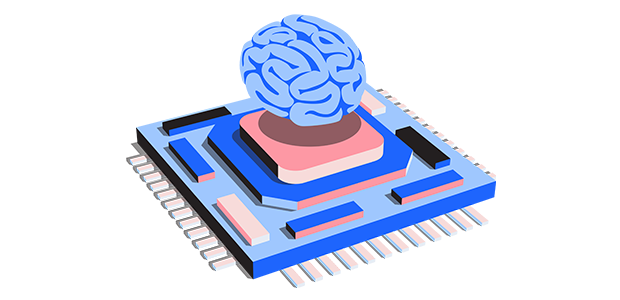
MintNeuro wins three government ARIA awards to apply advanced chip tech to neural devices
MintNeuro, a startup working in scalable, low-power semiconductor technology for minimally-invasive neural implant applications, has announced that it is the recipient of three major funding awards from the UK government’s Advanced Research and Invention Agency (ARIA) in collaboration with leading institutions.
These contracts will support breakthrough developments in chip-scale neurotechnologies, accelerating their adoption in clinical settings. The non-dilutive funding, totalling £17 million, has been awarded to MintNeuro and its partners as part of the UK R&D funding agency’s £69 million Precision Neurotechnologies programme, led by Programme Director Jacques Carolan.
MintNeuro will lead the custom development and integration of low-power, function-specific integrated circuits and systems for each of the three funded projects, aligned with the programme’s mission to develop precise, less invasive, and biologically integrated neurotechnologies:
1. Precision 4D Control of Cortical Circuit Function
Led by Andrew Jackson (MintNeuro, Newcastle University), in this £8.2 million project MintNeuro is joining forces with teams from Newcastle University, University of Oxford, and Imperial College London to deliver data-driven, AI-enhanced brain stimulation technology. The goal is to define and selectively target behaviourally-relevant neural populations within cortical circuits with unprecedented precision and cell-type specificity. By integrating multi-modal machine learning with advanced stimulation techniques, the project will enable 4D (multipolar, time- and space-variant) closed-loop control of pathological network dynamics and brain states underlying awake behaviour. This has the potential to create more effective, adaptive treatments for existing indications (e.g. epilepsy, Parkinson’s disease) and emerging treatment areas (e.g. stroke, depression).
2. Brain Mesh: A Distributed Network Interface to Mesoscale Cortical Circuits in Large Animals
Led by Jacob Robinson (Motif Neurotech, Rice University), this £4.7 million project is a collaboration between MintNeuro, Motif Neurotech, and Rice University to develop the Brain Mesh, a distributed network of ultra-small, wireless neural implants. Each millimetre-sized device, or Mesh Point, will be capable of sensing neural signals and delivering precise stimulation, creating a distributed, scalable system for monitoring and modulating brain activity. The Brain Mesh, thanks to its interactions with mesoscale cortical circuits, will provide a more precise, holistic way to interact with the brain compared to traditional implants for clinical translation, paving the way for more comprehensive neuromodulation treatments for mental health disorders like severe depression.
3. Minimally Invasive Multiplexed Temporal Interference Brain Stimulation Network
Led by Nir Grossman (UK Dementia Research Institute at Imperial College London), this £4.1 million project brings together MintNeuro, Imperial College London, and Newcastle University to develop a minimally-invasive brain stimulation technology capable of precisely targeting multiple brain regions. This system will leverage multiplexed temporal interference (TI) stimulation to modulate neural circuits with implant-like precision, but without the need for surgical implantation in the brain. The project will focus on developing the TI stimulation principle, creating a prototype device, and demonstrating its capabilities. The overall project vision is to enable targeted neuromodulation across the brain, paving the way for new treatments for many neurological and psychiatric disorders.
Jacque Carolan, ARIA Programme Director for the Precision Neurotechnologies programme, praised MintNeuro’s leadership across multiple projects, stating: “The standard was exceptionally high. The fact that MintNeuro is central to so many of the successful applications speaks volumes to both the quality of the work and the critical role MintNeuro is playing in the UK ecosystem.”
Commenting on this milestone ARIA funding, MintNeuro Co-Founder and CEO Dorian Haci said: “ARIA’s Precision Neurotechnologies programme is a global pathfinder, uniting frontier innovations to unlock new methods to interface with the brain and bringing the promise of hugely beneficial impacts for addressing the complex and devastating medical conditions that affect so many people worldwide. These landmark projects will drive advancements in treating brain disorders such as epilepsy, Parkinson’s, and neuropsychiatric conditions, where current solutions remain limited.”
Tim Constandinou, MintNeuro Co-Founder and CTO, added: “We are excited to be a key partner in these projects, which push the boundaries of neural interface technology and accelerate translation to human applications. At MintNeuro, our modular integrated circuit platform provides the foundation for scalable, less invasive, and efficient neural implants. These breakthroughs are only possible with advanced semiconductor solutions, and we are proud to lead this transformation.”
MintNeuro is uniquely focusing on the intersection of neurotechnology and semiconductors, pioneering advanced integrated circuits for next-generation neural implants. With deep expertise in chip design and a pre-validated technology platform, MintNeuro delivers rapid, customised solutions that empower medical device developers to accelerate innovation. Its compact, low-power, and modular chips seamlessly integrate functions like sensing, stimulation, and processing, unlocking capabilities that were previously unattainable. These ARIA-funded projects are a testament to MintNeuro’s leadership and progress in the field.
For more startup news, check out the other articles on the website, and subscribe to the magazine for free. Listen to The Cereal Entrepreneur podcast for more interviews with entrepreneurs and big-hitters in the startup ecosystem.

